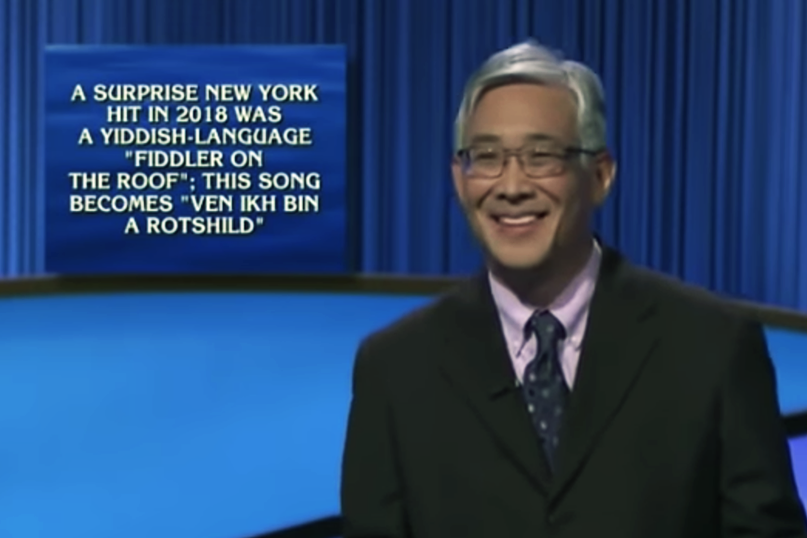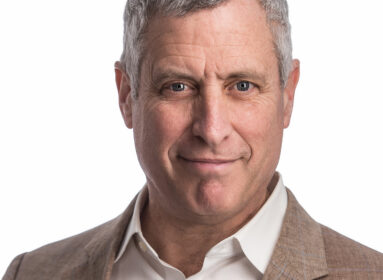
(JTA) — In recent years, Yiddish theater has enjoyed a remarkable resurgence, with Yiddish-language performances wowing audiences in New York, online and, last month, Stockholm. But perhaps its biggest audience yet came on last Thursday night when “Jeopardy!” devoted an entire category to it. In its Double Jeopardy round.
It was Ed Hashima, a professor of history at American River College in Sacramento, California, who correctly responded to four of the five clues. He identified one play as the Yiddish “King Lear,” named the Jewish holiday of Purim as being tied to Yiddish theater’s origins, and answered that Marlon Brando’s acting teacher was Stella Adler, who grew up in a family of Yiddish theater royalty. Hashima also revealed a “Daily Double” in the category. A smile broke across his face as host Mayim Bialik read the clue: “A surprise New York hit in 2018 was a Yiddish-language ‘Fiddler on the Roof’: This song becomes ‘Ben Ikh Bin a Rotshild.” The response:“If I Were a Rich Man.”
One clue stumped all of the contestants. “The play ‘Chantzhe in Amerika’ is about a woman wanting to learn this modern play; ‘How I Learned To’ do it is a non-Yiddish play,” Bialik read. The correct response: “What is ‘Drive,’” referring to the classic work by Paula Vogel, the Jewish playwright whose own passion for Yiddish theater has been a galvanizing force in her recent work.
Speaking recently with the Harvard Divinity Bulletin about her play “Indecent,” which incorporates scenes written by the classic Yiddish playwright Sholem Asch, Vogel offered an insight about why Jeopardy’s non-Jewish contestants might be so knowledgeable about this niche entertainment. “Yiddish is a language of yearning, a language of anxiety. I believe we’ve worked hard to communicate that love to the audiences,” she said. “Audiences have said they feel the emotion we are trying to convey.”
Main Photo: “Jeopardy!” contestant Ed Hashima smiles as he listens to host Mayim Bialik read a question in the Yiddish Theater category in the episode that aired Dec. 9, 2021. (Screenshot from show)







 Southern New England Jewish Ledger
Southern New England Jewish Ledger















